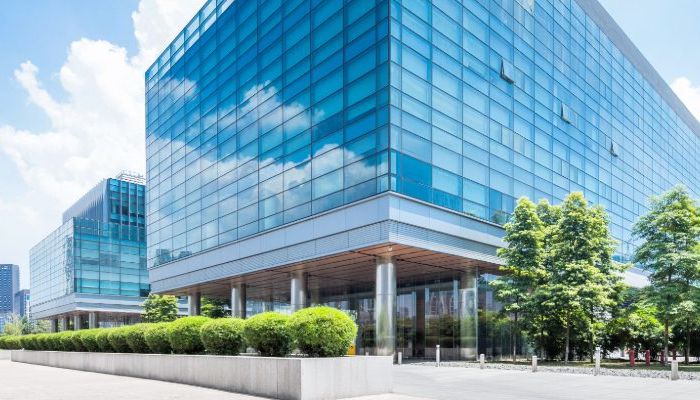A couple of weeks ago we held a webinar titled “In the Future Workplace, We Will Prioritize People over Place.” One of the polling questions asked of participants was: “Which is the most compelling reason for you to work from the office?”. The top answers were: Collaborate with Others (39%), Engagement / Company Culture (22%) and Informal and formal social interaction (22%). After spending the last 5 months working out of a spare bedroom and on occasion the breakfast nook space, I can understand why these answers came out on top.
As the HR leader at FM:Systems I think about this question from my own personal experience as an employee, as well as from the point of view of our employees collectively. Prior to the pandemic, approximately 65% of our employees were assigned to a physical office location and spent most of their week working from one of our physical offices. What we’ve found is that while most of our employees continue to enjoy the flexibility of working remotely, there are compelling benefits of working in-office and reasons why employees desire a physical space outside of their home.
My own experience has been that I miss the in-person interactions with employees across the company. Sitting in Raleigh, NC (our HQ and largest physical office), I would regularly catch up with employees in the break room or in the hallways, find out how kids were doing, what vacations they’d been on lately (oh to talk about far flung vacation spots, deep sigh), what the plans were for the weekend, and how they were doing in general. I also had the opportunity to travel to Boston a couple of times last year, and the UK in December of 2019 and more personally get to know our employees in the Boston, London and Blackburn areas. I’m a strong believer that the more personally you can connect with the people you work with, the easier it is to work through conflict, build trust, be accountable to your peers & co-workers, and do your best work.
Some of the comments from employees, in answer to a question posed about what benefits employees miss the most about working in an office via a company-wide survey we recently conducted include:
“I miss having the dedicated space. Work space was for work and home space was for home, and it was a difficult adjustment to mix the two.”
“I just miss seeing everyone in the office every day and catching up with people outside my department. The fun company happy hours and events made all the hard work during the day a little less hard!”
“Spontaneous talks”, “Ad hoc conversations in the kitchen/hallways/social activities”, “the ability to have a “hallway conversation””, “daily routine social interaction with the ability to quickly discuss and resolve situations”
Many of our employees experiences, along with my own can be categorized into one of the top answers to the polling question I referred to at the beginning of this post “Which is the most compelling reasons for you to work from the office?”
Collaborate with Others
While our teams are proving every day the ability to collaborate effectively doesn’t depend upon having everyone in the same space, certain types of work may lend themselves to in person collaboration. For example, for teams working on design projects having a space to collaborate face to face is a benefit. For new employees, the ability to “listen in” on conversations that take place around you can serve as a starting point for asking questions and learning what you don’t know.
Looking to the future, in a post pandemic world, I see an opportunity for companies to really focus on this collaboration space, this “we space” as we’ve begun to call it. Create office spaces where employees are able to safely collaborate in person in dedicated spaces. At the same time, allow employees the flexibility to maintain their “me space” in a remote location if this is the way in which they best perform strategic, independent, deep thinking work.
Informal and Social Interaction (Community)
For many employees, particularly younger workers, the office is an informal social setting, a place to make friendships that extend beyond the office. During the pandemic, employees who live alone may be experiencing an even deeper sense of disconnection without the community of the office space.
What I’ve noticed personally is without an office space filled with employees, I have less personal 1:1 interactions with employees and must take a more active and intentional role in reaching out to just ask “how are you doing today?”.
Engagement / Company Culture
To me, I see engagement and company culture as an extension of the informal and social interaction answer. In office activities such as monthly office happy hours, office luncheons after All Hands Meetings, themed celebrations for Halloween, March Madness, Fantasy Football…. all play into our company culture as well as the social interaction component of an office space.
While our company culture isn’t dependent upon an office space for engagement I do believe that it contributes in a positive way to the culture, and engagement of employees who enjoy working in a physical office setting.
Conclusion
Remote work is here to stay, and the workplace ecosystem needs to rise to the challenge. Employees want flexibility, but they also desire clean spaces with quality indoor air where they can collaborate effectively and socialize with others. Some employees want a definition between their work and home spaces. Others will want to use both “me space” and “we space” differently from day to day and week to week depending upon the work being done. To remain an employer of choice, companies will need to offer greater flexibility for remote work, while also offering compelling benefits of working in the office.
Watch the recording from our “Prioritizing People Over Place” webcast to learn how trends driving a greater focus on people over space will accelerate as employees return to the workplace.
Written by: Deb Hill, Senior Director of HR at FM:Systems










